1: Are We Ready for Deep Collaboration?
On This Page
The first step in Deep Collaboration is asking if everyone involved is ready to take part in finding new ways for First Nations and other multicultural Australians to lead together. This is different from having an adequate level of Cultural Competency.
We are asking people to be realistic about how much investment of time and energy will be required. What is your drive for Deep Collaboration? What are people's levels of readiness, willingness capacity and urgency to collaborate? This takes a high level of awareness, honesty and courage.
Discuss
Build on strong foundations
Take time to understand your own purpose for doing this work and make sure you have the foundations in place that will sustain you. You will need people and/or processes to help you reflect and work with awareness. You will need to improvise and be creative at times. You will need courage and stamina when things are difficult.
What are some ways you can see if you are ready?
Mark, Jane and Grant discuss different ways you can work out if you or your group is ready for the work of Deep Collaboration.
Learn and evolve along the way
Deep Collaboration involves constant learning. You and others should have permission to ask questions, check your thinking, test ideas and resist jumping to solutions too quickly. We are trying to find new ways for First Nations and other Australians to lead together, which will involve learning, risk and getting it wrong at times.
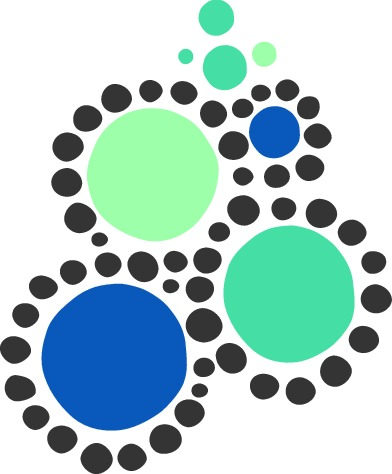
TAKE RESPONSIBILITY FOR YOURSELF
We all need to see ourselves as both part of the solution and, in some ways, part of the problem. This is not a criticism, but it recognises that Deep Collaboration asks everyone to move from where we are so that we can meet in a new place. This can be especially hard for people who are used to seeing others as the cause of the problems they work on.
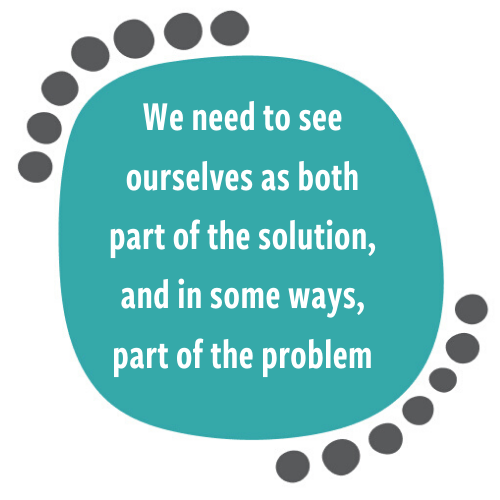
UNDERSTAND AND OWN YOUR POWER
Understanding our own power is an essential part of Deep Collaboration. You will need to commit to exploring your relationship to power and authority and better understanding how your power is perceived by others. Accepting and using our power can be difficult, especially across cultures. We need to see the power we all hold with new potential. See Power Self Assessment Tool

Understanding and appreciate the impact of trauma
Trauma affects many people. It can be described as an event or process that overwhelms a person, family or community’s capacity to cope. Trauma can be physical, psychological or spiritual.
Learn More
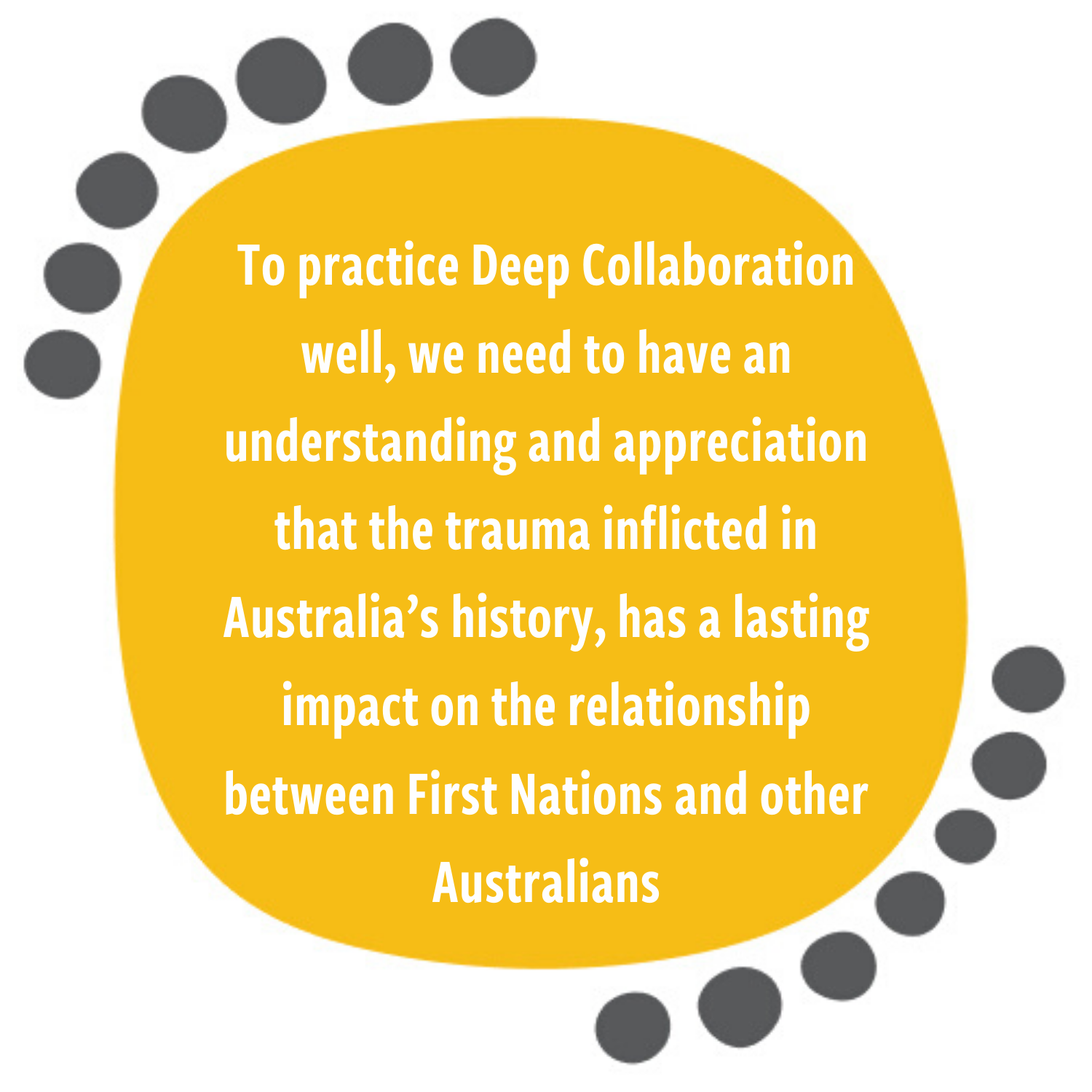
ALLOW MISTAKES
Learning to collaborate requires us to test our assumptions and try new ways of working. We will all inevitably make mistakes. When different levels of power and the impact of trauma is present there can be little tolerance for getting it wrong. This should be discussed upfront to be clear on what conditions are needed with your collaboration - to be sensitive to making mistakes, and to to be able to learn together what is needed for collaboration.
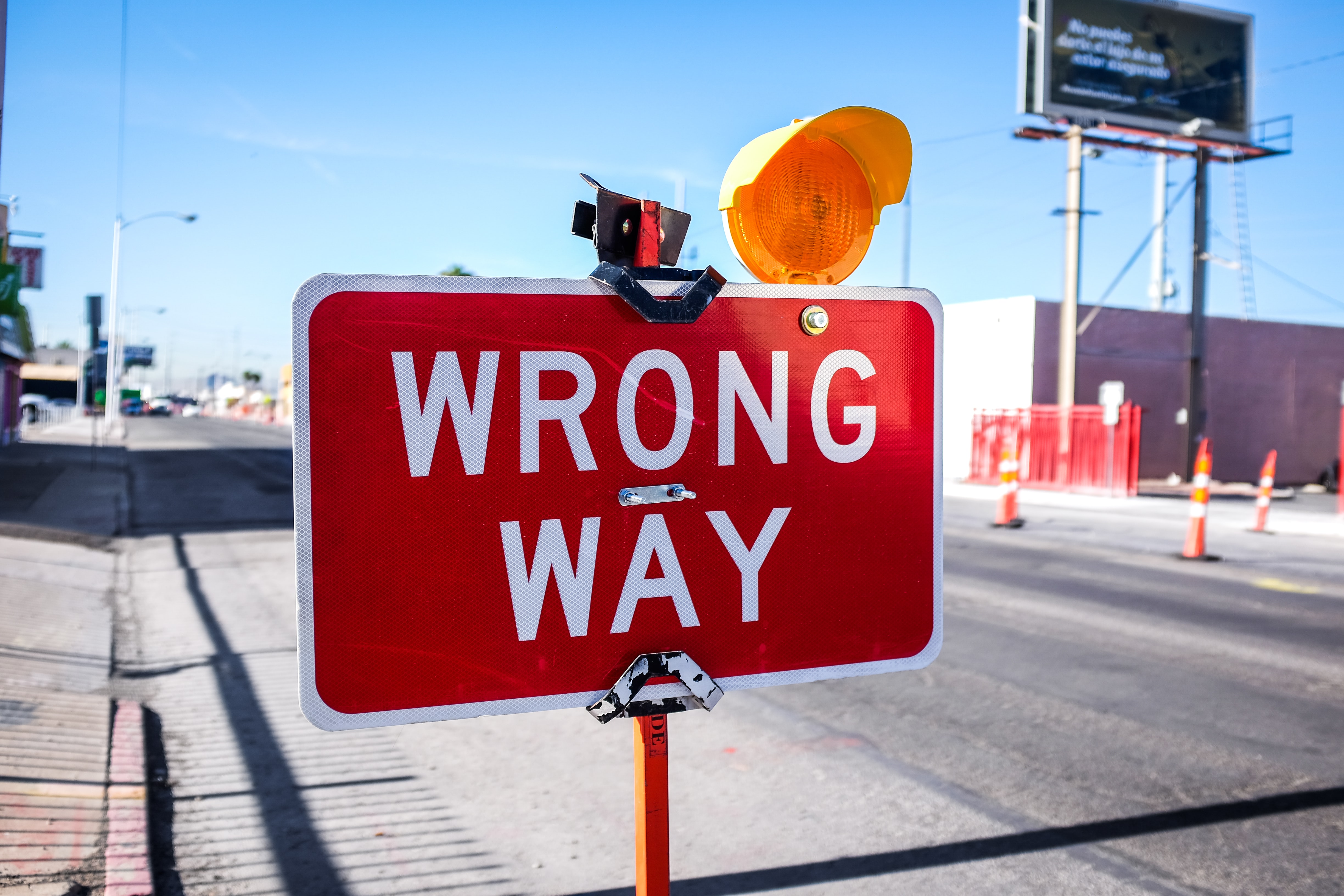
Skills
1
Build a 'Brave and Safe Enough' Space
Safety is the first issue in the relationships between First Nations people and other Australians. There is often no such thing as a completely 'safe space' when we work together in this way. The goal here is to create enough safety for people to commit to working together through this process.
Safety
Jane and Mark discuss why Safety in this work is important and some ways you can consider to increase safety.
2
Understand the conditions for change
Change only happens when the time and conditions are right. We need to have enough time and resources. The people involved need to be ready for a different way of working. Pay attention to the signals you are getting from people about how ready they are.
We also need to understand the boundaries before we start. Is your organisation committed to sustain the work for as long as is needed? Does it have the capacity to support you and others? Short-term attempts that fail often reinforce existing attitudes and make change harder for others.
How do you work out how much skin in the game you or your organisation are going to have?
'Skin in the game' is a level of commitment. Mark, Jane and Grant discuss how you can work out how much involvement and commitment you personally, and your group/organisation are really prepared to have.
3
Create your own conditions for change
You may not have all the conditions needed for Deep Collaboration at the start. That doesn’t mean you can’t create what you need. This includes things like:
- Developing and maintain networks and coalitions of allies
- Creating spaces and processes for working through the challenges such as talking to others or spiritual practice
- Making space in your group/organisation for reflecting on progress and celebrating success
- Nurturing yourself and others to prevent burn out
- Valuing your skills and contributions to the collaboration
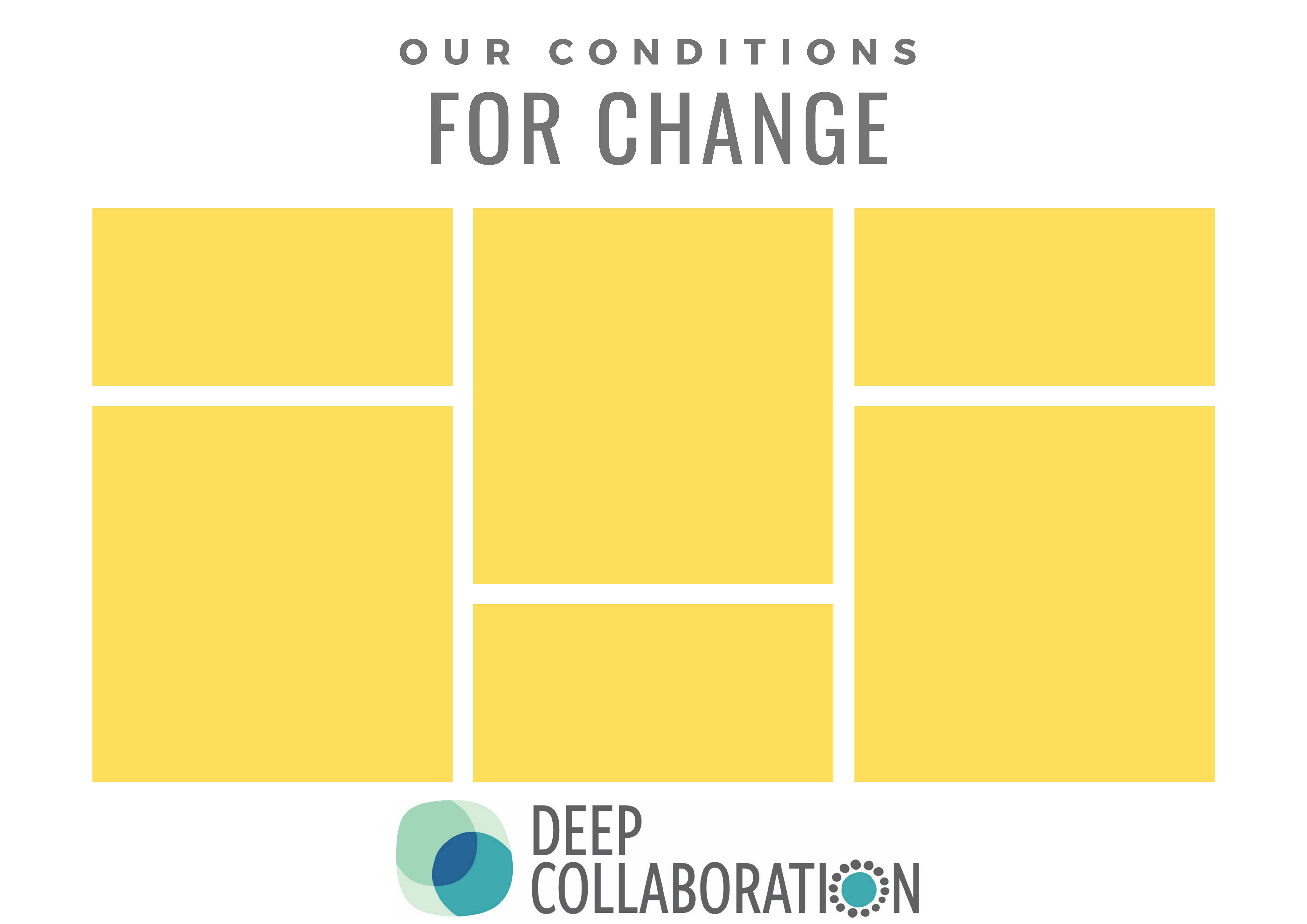
Tools
What are some ways you can see if you are ready?
Safety in this work and why we need to do it.
Working out your 'skin in the game'



